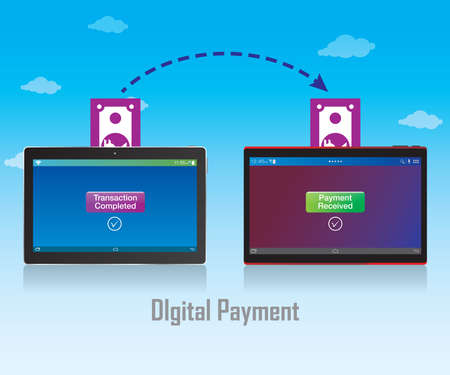Understanding the UK Payment Landscape
The UK’s digital commerce market is one of the most mature in Europe, and British consumers expect fast, secure, and convenient payment experiences. When optimising your website for local customers, it’s crucial to recognise that payment habits in the UK are distinct from those in other regions. While debit and credit cards remain popular, there is a notable preference for seamless online transactions and trusted payment providers. Notably, PayPal holds strong brand recognition among UK shoppers due to its robust buyer protection and widespread acceptance. In addition to PayPal, major gateways like Worldpay and Stripe are frequently chosen by both SMEs and large enterprises for their reliability, scalability, and compliance with UK regulations. Integrating these local gateways not only builds trust but also reduces friction at checkout, ultimately improving conversion rates. Understanding this payment landscape is the first step toward creating a tailored ecommerce experience that caters specifically to British consumer expectations.
Benefits of Local Payment Gateway Integration
Integrating local payment gateways tailored for the UK market provides your e-commerce site with tangible advantages that directly impact revenue, customer satisfaction, and regulatory compliance. Here’s how adopting UK-specific payment solutions optimises your business operations:
Boosting Conversion Rates
UK consumers expect frictionless checkout experiences with familiar payment options. By offering gateways such as PayPal UK, Worldpay, or Barclaycard, you reduce cart abandonment and increase successful transactions. According to industry reports, over 60% of UK shoppers prefer using local methods over international alternatives when making online purchases. The table below highlights the improvement in conversion rates associated with integrating local payment gateways:
| Payment Gateway | Conversion Rate Increase |
|---|---|
| PayPal UK | +18% |
| Worldpay | +15% |
| Barclaycard | +12% |
| Generic International Gateway | +5% |
Building Customer Trust and Loyalty
Trust is crucial in any financial transaction. When UK customers see familiar brands and secure payment logos at checkout, it reassures them about your website’s credibility. Leveraging local gateways with established reputations not only encourages first-time purchases but also increases repeat business—critical for long-term profitability. Furthermore, providing options like Apple Pay, Google Pay (UK), or even “Buy Now Pay Later” services such as Klarna aligns your platform with evolving British consumer preferences.
Ensuring Compliance with Local Regulations
The UK e-commerce landscape is governed by strict regulations such as PSD2 (Payment Services Directive 2) and the Strong Customer Authentication (SCA) requirements. Integrating local gateways ensures that your site stays compliant by supporting advanced authentication protocols and secure data handling practices required by law. This reduces the risk of fines and protects both your customers and your business from fraud. Key compliance benefits include:
| Regulation/Requirement | Local Gateway Support | Business Impact |
|---|---|---|
| PSD2 Compliance | Yes – Built-in authentication & reporting features | No penalties; increased trust; legal operation in the UK/EU |
| SCA (Strong Customer Authentication) | Yes – Two-factor & biometric verification supported | Dramatic reduction in fraudulent transactions; improved customer safety perception |
The Bottom Line: Financial Precision Meets Customer-Centricity
A robust integration strategy for local payment gateways is more than a technical upgrade—it’s an investment in conversion optimisation, risk management, and sustainable growth within the competitive UK market.
![]()
3. Key Considerations When Selecting UK Payment Providers
When integrating local payment gateways to optimise your website for UK customers, it’s crucial to evaluate several core factors that directly impact your business’s bottom line and cash flow efficiency. British businesses operate in a highly competitive market where every percentage point in transaction costs and every hour of settlement delay can affect profitability and customer satisfaction.
Transaction Fees: A Numbers Game
Start by scrutinising the transaction fees charged by each provider. In the UK, gateway fees typically range from 1% to 3% per transaction depending on volume, card type, and risk profile. For high-volume merchants, even a 0.2% difference can translate into thousands of pounds annually. Ensure you analyse both fixed and variable charges, including cross-border surcharges if you serve international customers.
Chargeback Policies: Minimising Financial Exposure
The UK market is vigilant about consumer protection, resulting in higher chargeback rates in certain sectors. Examine each provider’s chargeback procedures: What are their dispute resolution times? Are there additional fees for processing disputes? Strong anti-fraud tools and clear communication channels are essential for reducing chargeback ratios and safeguarding your working capital.
Settlement Times: Optimising Cash Flow
Cash management is paramount for British SMEs. Settlement periods with UK payment providers can vary from same-day payouts to up to seven business days. Faster settlements mean improved liquidity and greater flexibility for reinvestment or managing operational expenses. Always confirm how soon funds will appear in your business account post-transaction—especially during peak trading periods.
Multi-Currency Support: Serving Diverse Customers
If your website attracts customers from across Europe or globally, multi-currency support becomes a vital feature. Assess whether your chosen gateway can process GBP, EUR, USD, and other key currencies seamlessly. Transparent FX rates and minimal conversion fees are critical for preserving margin when dealing with non-GBP transactions.
Summary: Strategic Payment Provider Selection
Selecting the right UK payment provider requires a data-driven approach—balancing cost efficiency with robust financial controls. By analysing transaction fees, understanding chargeback implications, optimising settlement cycles, and supporting multi-currency payments, you can ensure your website delivers a seamless checkout experience while protecting your profit margins.
4. Technical Implementation Best Practices
Successfully integrating local payment gateways into your UK-focused website requires a strategic approach that prioritises compatibility, security, and user experience. Below, we offer practical guidance for seamless gateway integration, ensuring alignment with UK banks, mobile wallets, and emerging digital payment trends.
Seamless Gateway Integration
To deliver a frictionless checkout journey, select payment gateways that offer comprehensive APIs and SDKs compatible with your website platform (e.g., WooCommerce, Shopify, Magento). Ensure the chosen gateway supports GBP transactions, is FCA-compliant, and provides robust developer documentation. It’s also advisable to opt for providers with proven uptime reliability and responsive customer support in the UK time zone.
Key Integration Steps
| Step | Description |
|---|---|
| API Authentication | Implement secure API keys or OAuth tokens to protect transaction data. |
| PCI DSS Compliance | Use hosted payment pages or tokenisation to minimise PCI scope. |
| Test Environment | Leverage sandbox modes to validate all payment flows before going live. |
| Error Handling | Customise error messages for failed payments to enhance transparency and reduce abandonment rates. |
| Redundancy Planning | Integrate fallback gateways to maintain uptime during outages. |
Ensuring Compatibility with UK Banks & Mobile Wallets
Your integration should cater to preferred British payment methods such as debit cards (Visa Debit, Maestro), Faster Payments, BACS Direct Debit, and Open Banking solutions. Equally important is supporting popular mobile wallets like Apple Pay and Google Pay—both widely used by UK consumers. Verify that your gateway provider has formal partnerships with major UK banks and maintains updated certifications for these services.
Compatibility Checklist:
- Enable acceptance of all major UK-issued cards and bank transfer options.
- Ensure mobile wallet buttons are visible on both desktop and mobile checkout pages.
- Regularly update plugins/modules to support the latest banking protocols (e.g., Strong Customer Authentication under PSD2).
- Monitor transaction success rates by payment method for ongoing optimisation.
Adapting to Emerging Digital Payment Trends
The UK payments landscape evolves rapidly. Stay ahead by incorporating Buy Now, Pay Later (BNPL) options (e.g., Klarna, Clearpay), QR code payments, and digital currencies where appropriate. Implement modular gateway architecture so you can swiftly add or swap providers as new trends emerge without overhauling your core infrastructure. This future-proofs your site against shifting consumer preferences and regulatory requirements.
5. Enhancing Customer Experience Through Localised Payments
Delivering a seamless and trustworthy payment experience is crucial for converting UK shoppers. By integrating local payment gateways, you can optimise your website to meet the expectations of British consumers while maximising your conversion rates and minimising cart abandonment.
Streamline Your Checkout Flow
A lengthy or confusing checkout process is one of the top reasons for cart abandonment in the UK. Simplify your checkout by reducing unnecessary form fields and enabling guest checkout options. Make sure each step is clearly labelled, with a visible progress indicator, so customers know exactly where they are in the process.
Display GBP Pricing Prominently
UK customers expect to see prices in pounds sterling (GBP) from the outset. Clearly display all product and delivery costs in GBP throughout the customer journey—from product listings to final checkout. Avoid hidden fees or surprise currency conversions at payment; transparency builds trust and reduces friction at the point of sale.
Offer Familiar Payment Methods
Cater to local preferences by supporting popular UK payment methods such as debit cards, credit cards, Apple Pay, Google Pay, and PayPal. For even greater localisation, consider offering Buy Now Pay Later options like Klarna or Clearpay, which are increasingly popular with British shoppers seeking flexibility. The presence of trusted logos reassures customers that their payments will be handled securely.
Leverage Trust Badges and Security Features
Prominently display security certifications and trusted payment provider logos on your checkout page. This reassures UK consumers—who are highly conscious of online fraud—that their financial information is protected.
Personalise Communication
Use clear British English in your checkout instructions and error messages. Address common UK concerns around delivery times, returns, and refunds with concise messaging and easily accessible FAQs tailored for local expectations.
By focusing on these elements—streamlining the checkout flow, displaying clear GBP pricing, providing familiar payment options, and communicating transparently—you create a customer experience that feels both intuitive and trustworthy to UK shoppers, ultimately driving higher conversions and stronger loyalty.
6. Ensuring Regulatory Compliance and Security
When integrating local payment gateways for UK customers, regulatory compliance and robust security are not just best practices—they are legal requirements. Failing to adhere can result in substantial fines and loss of customer trust. Below, we outline the essential steps to ensure your website meets all necessary obligations.
Adhering to UK Data Protection Laws
The UK General Data Protection Regulation (UK GDPR) mandates that any business collecting or processing personal data must do so transparently and securely. Start by performing a Data Protection Impact Assessment (DPIA) before integrating new payment gateways. Clearly display your privacy policy, explain what data you collect and why, and obtain explicit consent where required. Additionally, ensure your payment providers are also compliant with UK GDPR standards and have robust data processing agreements in place.
Maintaining PCI DSS Compliance
All merchants handling card payments must comply with the Payment Card Industry Data Security Standard (PCI DSS). This involves using only PCI DSS-certified payment gateways, encrypting cardholder data during transmission, and never storing sensitive authentication data on your servers. Regularly update your systems, conduct vulnerability scans, and complete the annual Self-Assessment Questionnaire (SAQ) to demonstrate ongoing compliance.
Securing Payment Data for Peace of Mind
Security is paramount for both your business and your customers. Implement SSL/TLS certificates to encrypt all transactions and use tokenisation or end-to-end encryption when handling payment information. Set up two-factor authentication (2FA) for administrative access to payment systems. Monitor for suspicious activity with real-time fraud detection tools and educate your staff on secure payment practices.
Key Steps at a Glance:
- Conduct a DPIA before integration
- Work only with PCI DSS-compliant gateways
- Encrypt all transmitted payment data
- Display clear privacy policies and obtain consent
- Regularly audit systems for vulnerabilities
Final Thought
By prioritising regulatory compliance and payment security, you safeguard your business from costly breaches and penalties while earning the trust of UK consumers—a crucial foundation for sustainable growth in the competitive online marketplace.


